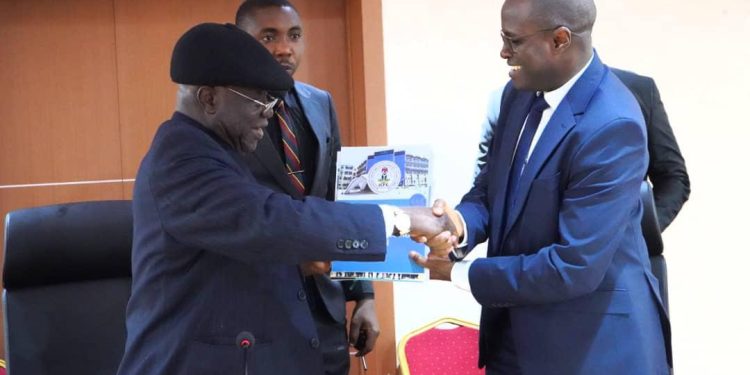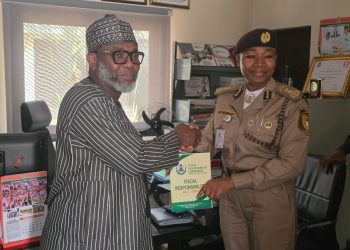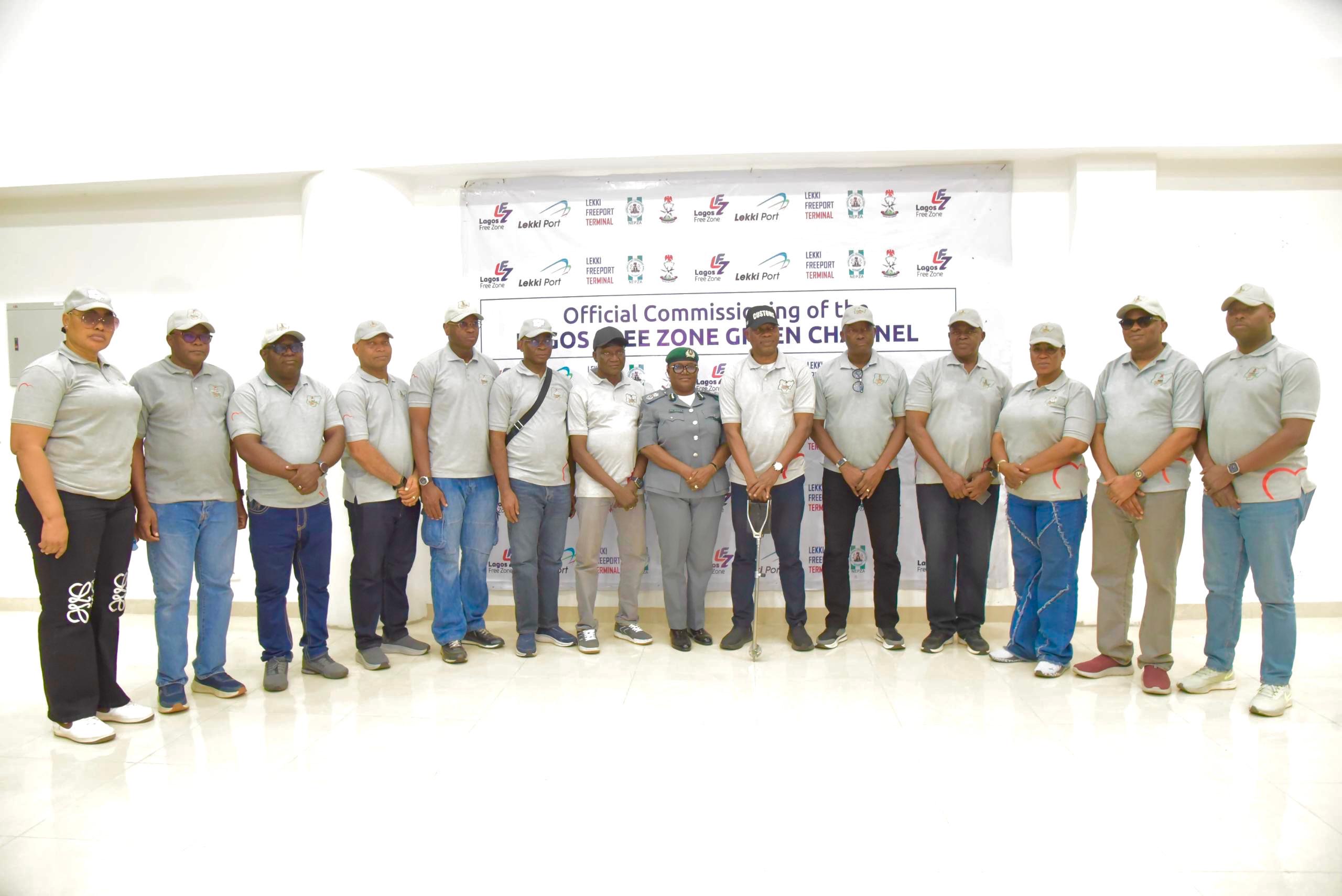By Nkechi Eze
The Chairman of the Independent Corrupt Practices and Other Related Offences Commission (ICPC), Dr. Musa Adamu Aliyu, SAN, has called for urgent judicial reforms, constitutional amendments, and stronger collaboration with the National Judicial Institute (NJI) to reinvigorate Nigeria’s anti-corruption war and restore public confidence in the justice system.
Dr. Aliyu made the call during a courtesy visit to the NJI headquarters in Abuja, where he was received by the Administrator of the Institute, Hon. Justice Babatunde Adeniran Adejumo, OFR, and senior management staff. The visit, according to ICPC’s Director of Public Enlightenment and Education, Demola Bakare, was part of ongoing efforts by the Commission to strengthen institutional partnerships in the fight against corruption.
Tracing the shared history between the two institutions, the ICPC Chairman recalled that the Commission’s pioneer leadership, much like the NJI, was made up of retired judges. He described this as “a natural alignment of vision and duty,” anchored on the values of courage, knowledge, and integrity.
“There is a pressing need to amend the Constitution to impose a time limit on the resolution of corruption cases, just as is done with election petitions,” Dr. Aliyu said. “We are equally concerned about conflicting trial court judgments that contradict appellate court rulings. This inconsistency undermines public trust in our justice system.”
The ICPC boss stressed that corruption cases must be resolved with speed and consistency to convince Nigerians that the justice system works. He underscored the importance of asset recovery, effective case management, and stringent sanctions, noting that “the corrupt must be deprived of the proceeds of crime through civil forfeiture and speedy criminal trials. Nigerians must see clearly that corruption does not pay.”
Dr. Aliyu identified three thematic areas requiring urgent attention for improved judicial service delivery: constitutional amendment to fast-track corruption cases, judicial consistency in rulings, and the reconstitution of the NJI’s Anti-Corruption and Transparency Unit (ACTU), which has been inactive since 2023.
“We urge the Administrator to reconstitute the ACTU and forward the nominees to ICPC. ACTUs are vital compliance structures for preventing corruption within institutions,” he appealed.
Commending the NJI for its ongoing training and capacity-building programmes, the ICPC Chairman emphasized that building the capacity of judges, in partnership with anti-graft agencies, is critical to deepening public trust in governance. He congratulated Justice Adejumo on his recent appointment as NJI Administrator, wishing him a successful tenure.
In his response, Justice Adejumo welcomed the ICPC Chairman and expressed NJI’s readiness to support the Commission’s anti-corruption drive. He highlighted the centrality of the judiciary in sustaining good governance and national progress.
“Neglecting the judiciary is akin to forgoing the well-being of the nation via a lack of justice,” Justice Adejumo said. “The policy thrust of every administration is often backed by the ability of the Judiciary to uphold the law.”
He acknowledged that delays in the dispensation of justice have fueled negative perceptions of the judiciary, stressing that judicial progress depends on judges doing the right thing at all times. He explained that NJI has restructured its training model from isolated programmes to a communal, law-backed effort that prioritizes character development and resilience against corruption temptations.
On the forthcoming ICPC–NJI workshop for judges, Justice Adejumo said the platform would enable frank discussions to equip jurists with practical insights into the evolving methods of corruption. “Law is a tool of social engineering meant to close the lacuna of injustice and provide a realistic path to equality and equity,” he added.
He further emphasized the socio-economic impact of a functional judiciary, noting that “if courts fail, the economy and governance as a whole will suffer.” He also underscored the importance of prioritizing the welfare of judicial officers and ICPC staff in sensitive positions, warning that neglect could increase the risk of corruption.
Advising aspiring judges, the NJI Administrator urged them to look beyond the trappings of office and focus on integrity, honesty, and selflessness. On Dr. Aliyu’s proposal for constitutional amendment to expedite corruption cases, Justice Adejumo described the path as long and arduous but assured ICPC of NJI’s commitment to support reforms.
“We will ensure NJI maintains a corruption-free relationship with all stakeholders and will continue to assist the Commission whenever required,” he pledged.















